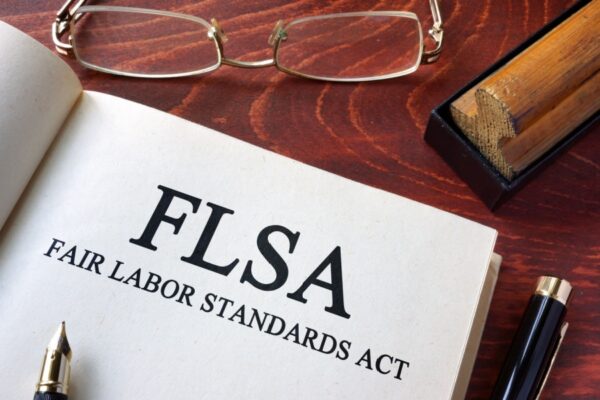Operating a restaurant is an exciting yet challenging business venture. Beyond the daily operations of serving delicious food and providing excellent customer service, restaurant owners must also navigate the complex landscape of potential risks and liabilities. From kitchen fires and foodborne illnesses to slip-and-fall accidents and employee injuries, the litany of potential incidents could lead to significant financial losses. This is where restaurant insurance programs come into play. These programs serve as a financial safety net, helping to mitigate the financial impact of accidents, property damage, or lawsuits. This article will explore how these insurance programs function and their essential role in the restaurant industry.
Understanding Restaurant Insurance Programs
Restaurant insurance programs are a form of business insurance tailored to the unique needs and risks of the restaurant industry. These programs typically consist of several types of coverage, including property insurance, general liability insurance, workers’ compensation, and business interruption insurance. Each type of coverage protects against different risks, collectively providing a comprehensive shield against potential financial losses.
Property Insurance
Property insurance covers damage to the physical property of the restaurant, including the building itself and the assets within it, such as kitchen equipment, furniture, and inventory. This coverage kicks in when property damage occurs due to incidents such as fires, storms, vandalism, or theft.
For example, if a fire breaks out in the kitchen and damages the cooking equipment and interior, property insurance would cover the costs of repairing the damage and replacing the ruined equipment. Without this coverage, the restaurant would have to bear these costs out of pocket, potentially straining its financial resources.
General Liability Insurance
General liability insurance covers claims of bodily injury, property damage, and personal and advertising injury that your business could be legally liable for. This coverage is essential in the restaurant industry, where accidents like slip-and-falls or foodborne illnesses can lead to lawsuits.
Suppose a customer slips on a wet floor in the restaurant and suffers an injury. They could sue the restaurant for their medical costs and other damages. In this case, general liability insurance would cover the legal fees, as well as any settlement or judgment against the restaurant. Without this coverage, the restaurant could face significant financial losses.
Workers’ Compensation Insurance
Workers’ compensation insurance covers medical expenses and lost wages for employees who get injured or fall ill due to their job. In the restaurant industry, workers face various hazards, including cuts, burns, and repetitive stress injuries.
For instance, if a chef suffers a burn injury while cooking, workers’ compensation insurance would cover their medical bills and a portion of their lost income while they recover. This insurance not only protects the restaurant from potentially costly claims but also ensures that employees receive the care and support they need.
Business Interruption Insurance
Business interruption insurance covers loss of income when a covered disaster forces the restaurant to temporarily close. This could include situations like a fire or a significant water leak that requires extensive repairs.
For example, if a restaurant has to close for a month due to fire damage, business interruption insurance would cover the lost income during that period. This coverage helps ensure the restaurant can continue to meet its financial obligations, such as rent and employee wages, even when it’s not generating its usual revenue.
Liquor Liability Insurance
For restaurants that serve alcohol, liquor liability insurance is a critical coverage. It protects against lawsuits and claims resulting from damages or injuries caused by intoxicated customers. For instance, if a customer becomes inebriated at the restaurant and then causes a car accident, the victims could sue the restaurant. Liquor liability insurance would cover the legal costs and any resulting settlements or judgments.
Food Contamination Insurance
Food contamination insurance, also known as spoil age insurance, covers the cost of replacing food that gets spoiled or contaminated due to equipment breakdown or power outage. It may also cover lost income if the restaurant has to close temporarily due to a significant contamination event. Given that restaurants deal with perishable goods daily, this coverage plays a crucial role in mitigating potential financial losses.
For instance, if a prolonged power outage leads to the spoilage of stored food, food contamination insurance would cover the costs of replacing the spoiled food. Without this coverage, the restaurant would have to bear these costs alone, which could be substantial depending on the volume of food spoiled.
Cyber Liability Insurance
With the increasing digitization of restaurant operations, from online reservations to digital payment systems, cyber liability insurance has become increasingly important. This insurance covers financial losses resulting from cyber threats like data breaches or cyber-attacks.
Suppose a restaurant’s payment system is hacked, leading to the theft of customers’ credit card information. The restaurant could face lawsuits from affected customers, not to mention the costs of responding to the breach, including notification costs, credit monitoring services, and public relations efforts. Cyber liability insurance would cover these costs, protecting the restaurant from potentially devastating financial losses.
Equipment Breakdown Insurance
Restaurants rely heavily on equipment, from cooking appliances to refrigeration units. Equipment breakdown insurance covers the cost of repairing or replacing equipment that breaks down due to power surges, motor burnout, or boiler malfunction. It also covers the lost income if the restaurant has to close temporarily due to an equipment breakdown.
For instance, if a restaurant’s main oven breaks down and it takes several days to repair, equipment breakdown insurance would cover the repair costs and the lost income for those days. This can help the restaurant bounce back quickly from such incidents without significant financial strain.
Conclusion
In summary, restaurant insurance programs provide a comprehensive safety net that protects restaurants from a multitude of risks inherent in their operations. From covering property damage and employee injuries to shielding against lawsuits and lost income due to unexpected closures, these insurance programs play a crucial role in safeguarding the financial stability of restaurants.
Restaurant owners must carefully assess their specific needs and potential risks to choose the right mix of coverages. It’s also important to regularly review and update their insurance programs to ensure they provide adequate protection as the restaurant grows and its operations evolve.
The restaurant industry is fraught with risks and uncertainties, but with a robust insurance program, restaurant owners can focus on their passion for providing excellent food and service, knowing they’re prepared to weather whatever storms may come their way.
In the wake of any incident, the restaurant can bounce back quickly without having to bear the brunt of the financial losses. Not only do these insurance programs protect the restaurant’s financial health, but they also contribute to a more resilient and vibrant restaurant industry. Insurance is an investment in the restaurant’s future, providing the peace of mind to innovate, grow, and thrive even in the face of adversity.
Therefore, restaurant insurance programs do not merely mitigate financial losses in the event of accidents, property damage, or lawsuits; they ultimately form the cornerstone of any successful restaurant venture, fostering resilience, promoting safety, and securing the future of the business.
Material posted on this website is for informational purposes only and does not constitute a legal opinion or medical advice. Contact your legal representative or medical professional for information specific to your legal or medical needs.



